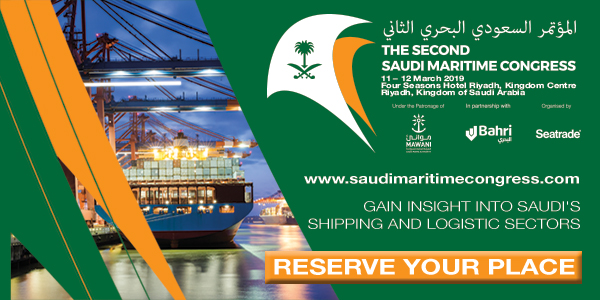He knows the sector well as the only person who worked for the two biggest flags. Previous to his appointment at Liberia Ship Registry he was head of the Panama Merchant Marine, the government Ship Registry and world’s largest register.
“Ship Registries are an integral part of the global maritime industry, an industry that is responsible for transporting over 90% of the world’s goods; and an industry that has been essential to the advancement of global free trade since immemorial time. However, the flag, representing the sovereignty of the vessels that ply the seas, and the element that enables the cross-boundary aspects of maritime transport to occur is the part of the industry that is probably the least known and understood,” says Castillero.
“If Ship Registries did not exist, there would be no law enforcement on the open waters. Registries are not only a major part of the defense against lawlessness beyond land, but the caliber of Ship Registry you choose is just as important.”
Why the public and private partnership works for a ship registry:
“In the entirely private system, you have a huge disadvantage as you are not really connected to the State and therefore their support is nonexistent. That support is necessary because we deal with an over-regulated industry both internationally and nationally.
“In the governmental system, you have the advantage of having the full support of the government, but their red tape will never allow you to provide the service a private company needs. Therefore, this never allows for expedited decisions, and in such a dynamic and demanding environment as the shipping industry, this is economically catastrophic. Furthermore, it is very common that the persons running the registries are politicians and not shipping people, creating a disconnect between the registry and their clients.
“The private public partnership is the only sensible solution because it’s a combination of both models, essentially cutting out their downfalls and keeping the benefits of both. Plus, not only will there be investments in the registry itself, but there will be an accountability of actions and results, without losing any government connection or support.
On the competitive landscape between registries which has seen some offering services for free:
“I honestly cannot understand why competitors are trying to gain tonnage indiscriminately, just by giving their services for free; it is insane and unsustainable. I say unsustainable because when there is no income there is no way to provide the necessary support and service required of all serious ship registries. Thus, you become just a revenue stream with no commitment for the future. Which is exactly what a ship registry should not be.
‘In my experience, I have discovered that many shipping companies don’t know why they should choose one particular flag over another. They only realise how important their flag state is when they face an emergency, a potential delay or regulatory challenges. At this point it becomes very easy for companies to understand the impact the flag has on their business and how delicate a decision it is to choose the right flag. And when the client starts realizing how bad the service is, their solution is – ‘Don’t worry, I will give you discounts”.
“It is these substandard flags that ruin the reputation, and give new life to mantra of ‘Open Registries are bad!’.”
Why it is easy to look at the profits that come from run a ship registry, but you need to understand it also requires significant investment:
“There is a significant amount of money in the Ship Registry “industry” at a macro-level. With over 70,000 vessels plying the high seas, and each one requiring a flag state, it is an easy calculation to see that you have a significant client base for a service that is a requirement. However, it is not all pure profit. There is also a significant investment in running a registry.
“In addition, of the revenues received by ship registries, these have to, in turn, be distributed to the nations of which the flag states belong. Unfortunately, some ship registries share very little with their Nation-Partner. Ship Registries that operate properly do have serious capital requirements and come with significant operating expenses.
On the balance between maintaining in-house technical capabilities and the majority of technical functions:
"It is a fine line, and historically flag Administrations all had the technical capacities in-house. But slowly this capability was lost by most, and it has gotten to the point where we are in the definite minority of technically competent Ship Registries. Class Societies have become more advanced than most Flag Administrations on technical issues and in having the global coverage required by the industry; and this is why we too work very closely with them, yet we insist on certain oversight and controls.
“It’s a sad reality that even today, many flags have no idea how the ship floats because in reality, they have never been onboard a vessel. This is in contrast to the few Flag Administrations that are careful to hire industry professionals who have actually worked on vessels and have high levels of technical expertise, allowing the Registry to delegate less and less tasks to third parties and saving their shipowners’ money. Needless to say, this is not the case for most registries who continue to rely on ROs at higher costs. IMSA and IMO audits should be taken more seriously.”
On why the fundamental difference between flags is the business model they operate under:
“Everybody claims they know about their competitors but they really don’t. The fundamental difference is the business model. Convenience does not mean not serious. The word ‘flag of convenience’ was demonised but think about what it represents; we are the guardians of the regulations and a key element in the global trade, allowing the economy to be competitive, open and profitable. While the closed registries are the opposite.”
Copyright © 2024. All rights reserved. Seatrade, a trading name of Informa Markets (UK) Limited.
Add Seatrade Maritime News to your Google News feed.  |



